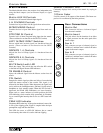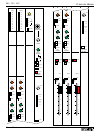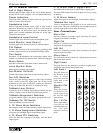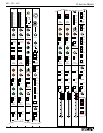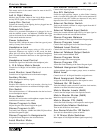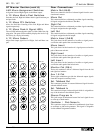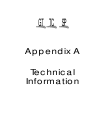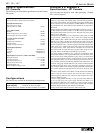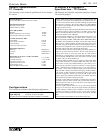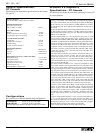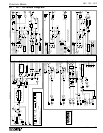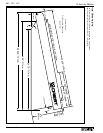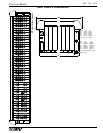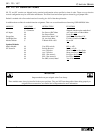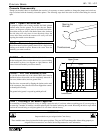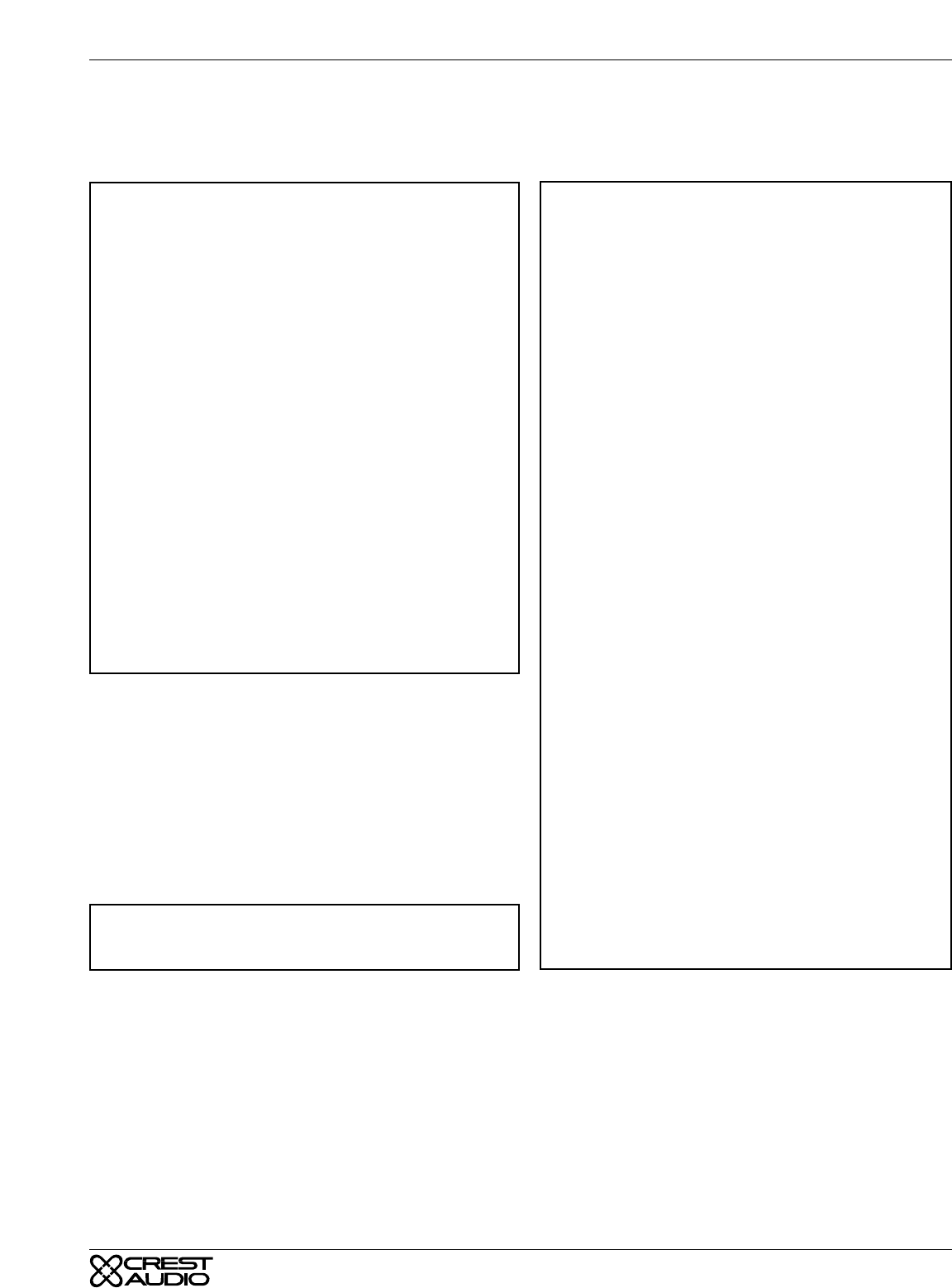
SP / TC / GT
APPENDIX B
CENTURY SERIES
General Specifications -
TC Console
The following are the technical specifications for the Century
TC console.
Frequency Response
+0.0, -0.5dB, 20Hz to 20 kHz (referenced to 1kHz)
Total Harmonic Distortion
Mic input to Group output
20Hz to 20 kHz at +15dBu <0.01%
Noise (22Hz to 22kHz)
Mic EIN -129 dBu
Mix Bus Output Noise (20 ch routed) - 80 dBu
Aux Bus Output Noise (20 ch routed) - 80 dBu
Crosstalk (Measured at 1kHz)
Channel Mute >102 dB
Channel Fader Attenuation > 96 dB
Channel Routing > 85 dB
Channel Aux Send Attenuation > 93 dB
Input/Output Impedances
Mic Input 4kΩ balanced
Line Input >10kΩ balanced
Outputs 140Ω balanced
Input/Output Levels (0VU = +4 dBu, 1.23V RMS)
Mic Input Sensitivity + 4 to -62 dBu
Line Input Sensitivity + 12 to -38 dBu
Input Insertion Point Level + 4 dBu
Output Insertion Point Level - 2 dBu
Nominal Output Level + 4 dBu
Maximum Balanced Output Level +28 dBu
Architect’s & Engineer’s
Specifications - TC Console
The following text should be used when specifying a Century
TC in a bid or proposal.
The live sound console shall be constructed in a modular fashion and
be housed in a steel frame with molded plastic side panel/carrying han-
dles. The console shall be black with white labeling and utilize XLR
lighting device connectors. The console shall have an XLR talkback
mic connector and a headphone jack. These shall be located beneath the
far right side of the armrest.
All microphone inputs shall be electronically balanced and accessed via
3-pin XLR connectors and have an EIN of -129 dBm. All line inputs
shall be electronically balanced and accessed via 1/4" TRS jacks. The
insert points shall be via 1/4" TRS jacks.
Each input channel shall have: a +48 volt phantom power switch, a -15
dB mic pad switch, a 80Hz high pass filter switch, a polarity reverse
switch and 4-band (LF-80Hz, LMF-100Hz-2kHz, HMF-400Hz-8kHz,
HF-10kHz) mid-sweepable EQ an EQ In switch. Each input channel
shall also have: a FET controlled (10 millisecond ramp) mute switch
with LED, sub-group assignment switches, a L/R assignment switch, a
dedicated mono assignment switch, a dynamic signal present LED and
peak LED, a PFL switch, and a 100mm long throw fader.
Each input channel shall have eight auxiliary sends which shall be con-
trolled via six knobs and four switches. The aux sends shall have a
pre/post fader switch for every four sends. The aux sends shall be
selectable pre or post EQ and pre or post mute. There shall be an Aux 8
direct switch that shall allow the Aux 8 rotary knob to directly control
the output of the 1/4" direct out TRS jack.
The console shall be available in four or eight bus configurations. Each
group module shall have a ten-segment LED meter array. The effect
return section of each group module shall have a gain control, a two-
band fixed EQ, sub-group assignment switches, a L/R assignment
switch, a dedicated mono assignment switch, two aux send controls, a
pan control, a level control, a dynamic signal present LED and peak
LED, and a PFL switch. The remainder of the group module shall have
a pan control, an FET controlled (10 millisecond ramp) mute switch
with LED, assignment switches for: mono and L/R. A PFL switch,
dynamic signal present LED and peak LED, and a 100mm long throw
fader shall also be provided on the group module.
The master section shall be four modules in width and have the follow-
ing features: eight aux master controls with associated AFL switches, a
100mm long throw fader for each of the three master outputs and a
comprehensive talkback system.
The power supply shall be housed in a 14 ga. steel chassis that shall
occupy two 19" rack spaces. The power supply shall have the ability to
be daisy-chained to additional power supplies to provide a fail-safe
operating environment. Connection of two or more power supplies
shall not require additional interface hardware other than the provided
cable.
The live sound console shall be: the Crest Audio Century TC.
Configurations
TC Consoles are available in the following configurations:
Four Subgroup 16, 24, 32, 36, 44, or 56 inputs
Eight Subgroup 12, 20, 28, 32, 40, or 52 inputs
Optional stereo input modules and matrix modules are available.



